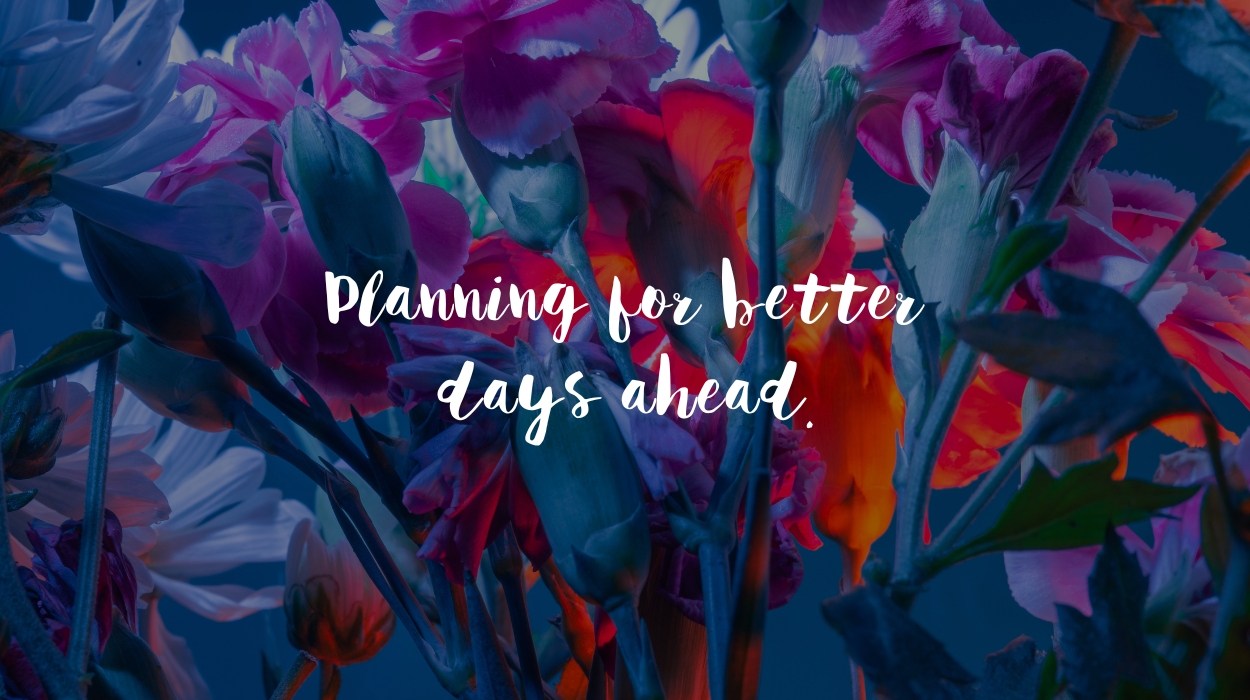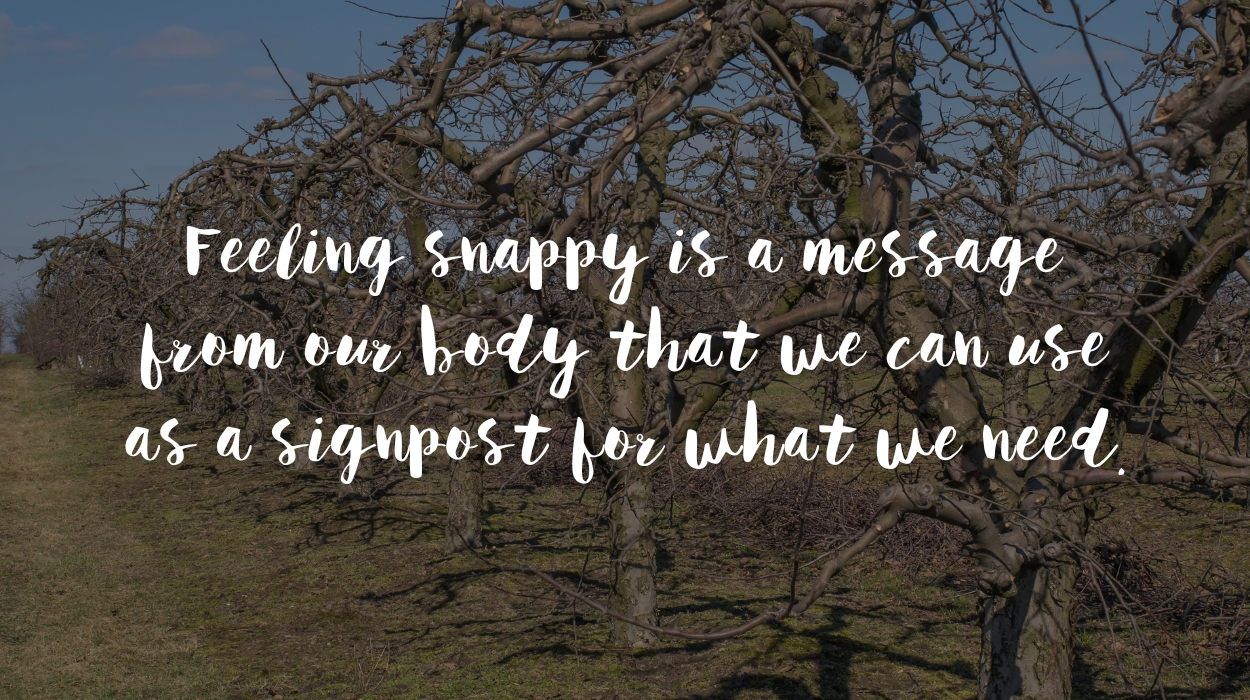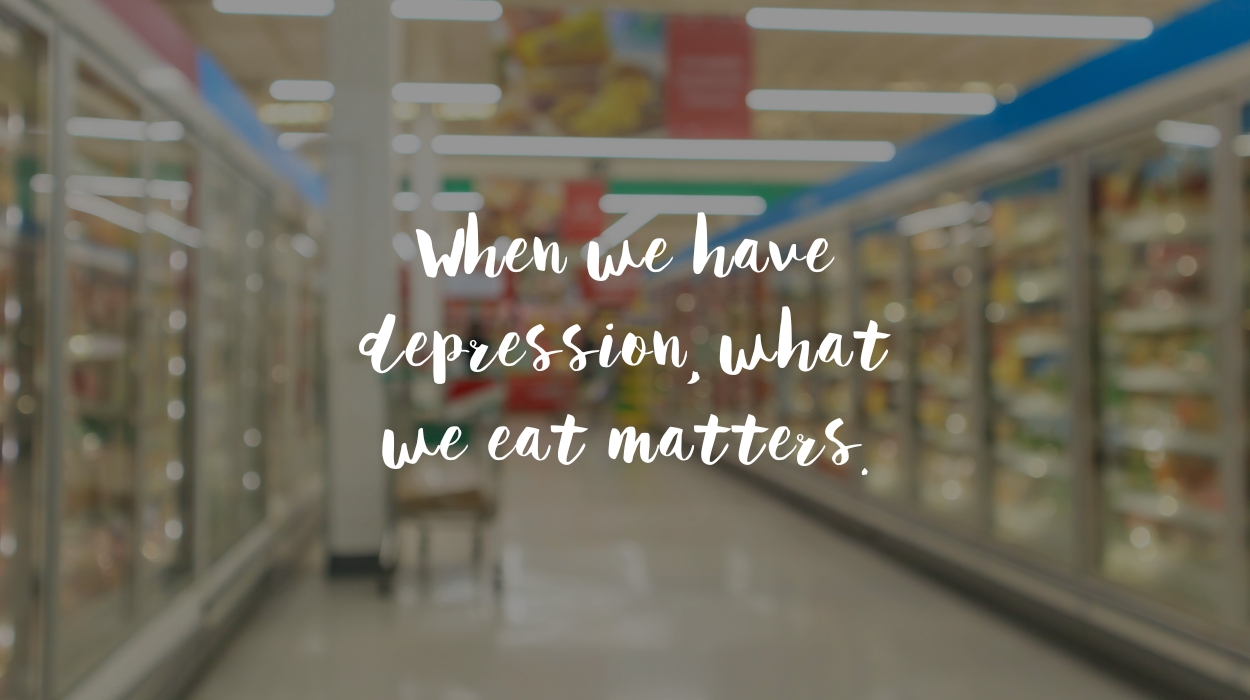Our brains are a truly incredible and fascinating organ. The human brain weighs on average only around 3 lbs, can process information at a speed of up to 250mph and can power a small bulb (see this article about facts about the brain for more details).
When we are working with something so powerful and complex then the answer is, as we would expect, complicated. Are routines good for our mental health? The answer is yes… and sometimes no. So, let’s delve deeper to work out what is best for us when it comes to setting routines and when having a routine can benefit our mental health.
Routines allow us to develop healthy habits
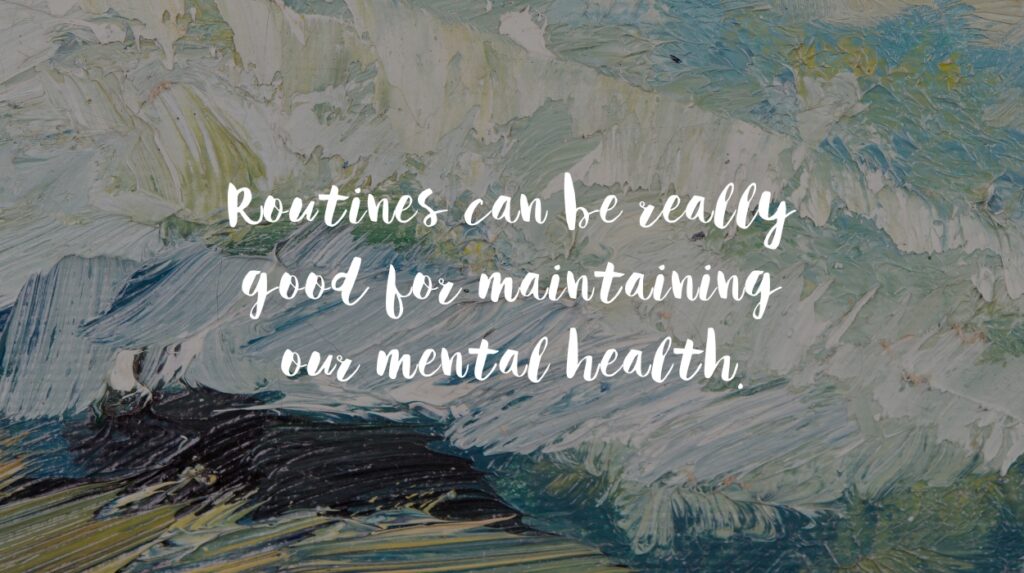
When we plan out our day, we can pre-allocate time to each task we have to get done, and ensure we have the time we need to fit everything in, including enough time for breaks, leisure and relaxation. Planning can help us feel like we have our ducks in a row, and allows us to create a sense of order and calm, which can be particularly helpful when we have an especially hectic week ahead.
A routine also means that we can plan things out better, like our meals for the week. When we pre-plan our meals for the week ahead, we can make sure we get the right ingredients in, ready for when we have time to cook. We can also freeze batches of food or stock up on a few ready meals for those days we might not have the time or energy to.
Planning ahead allows us to routinely build exercise and some social time into our schedule as well. We might even be able to combine the two and exercise with a friend. If we find that there’s a great pilates class every Monday evening, we can schedule that in, or we can set up a regular coffee date with a friend that we haven’t seen in a while. If we plan it in, we are far more likely to do it!
All of these things, diet, exercise and socialising, are important for our mental health. If we schedule them into our week and make them part of our routine, we are far more likely to follow through with our plans. If we are finding it hard to commit to the routine we have set for ourselves, we can assess why, make necessary changes and flex where possible. Sometimes things crop up that we don’t expect and plans we had go out the window. If this happens, then we can always pivot by shuffling the non-essential tasks along, or by removing a task that’s been hanging out on our to-do list for ages but isn’t really all that necessary.
We know what’s coming next
Knowing what’s coming next is good for our mental health. In times of unpredictability and uncertainty, a routine can keep us anchored and provide us with a sense of control. Even if we have to schedule in something that we hate doing (cleaning the bathroom, anyone?), at least we know we will have ticked the box and we can plan something we like doing afterwards as a reward.
Something helpful to consider when planning our week is to make sure we don’t schedule a full day of tasks we dread. Ensuring there is something good in every day to look forward to can motivate us through those tasks we don’t enjoy. Our routine is not meant to feel like an additional burden on us, it is meant to be the very thing that helps to make the burdens more manageable and ensure we schedule in time to relax and do things that we enjoy as well.
Planning for a good night’s sleep
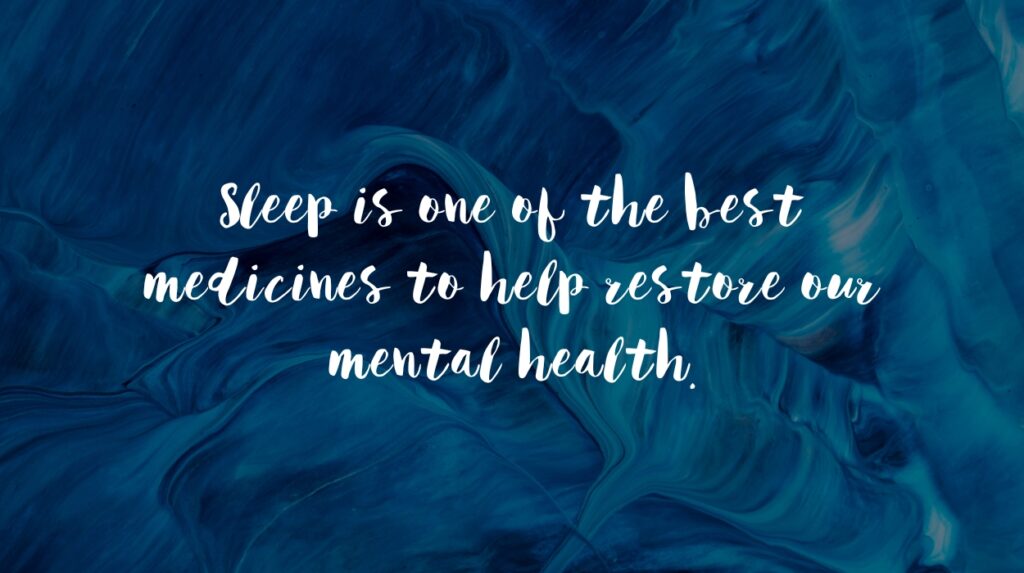
A good night’s sleep is incredibly important for our brain. After all, it makes sense that something that can power a small bulb needs recharging daily. All sorts of magical things happen when we’re asleep. It is during sleep that our body does much of its healing, repairing and restoring. Missing out on sleep means missing out on essential overnight maintenance.
If we are finding sleep difficult, then there are a few things we can do to help with this, and this is where our routine plays a very important part. We can make sure that all our screens are turned off a good couple of hours before we ‘hit the hay’ and do things that help our brains wind down before sleep. Doing things to relax, like running ourselves a warm bath or curling up with a book, can help. Making sure our bedroom is quiet and relaxing can help too. If sleep is still eluding us then it may be worth speaking to our GP to see what support could be put in place to help us.
For more information, see the full mentalhealth.org.uk article on the impact of sleep on our mental health.
When we need to be more mindful about sticking rigidly to routines
It’s important to remember that the routines we set for ourselves are meant to help alleviate, not exacerbate, our anxieties. For example, if we find ourselves out with a friend, enjoying a coffee and a catch-up, and we remember that in order to stick to our routine, we need to return home to clean the kitchen, stop and take stock.
Which is truly more important for your mental health, that the dishes are completed by 4pm or that you spend some time unwinding with someone you have been looking forward to seeing? We sometimes need to remind ourselves that our routines are there to help us maintain good mental health, not to cause additional stress and anxiety. It is important we acquire the benefits of routine, but not stick to them rigidly as rules that can’t be broken. We can measure a break in the rules against its impact on our mental health.
If we find that we feel we need to stick rigidly to a routine we have set because we have a feeling that something bad will happen if we don’t, then we might be suffering from a condition called Obsessive Compulsive Disorder (OCD).
This strong urge to complete an action or ritual in order to prevent something bad from happening can be extremely difficult to break. An example could be driving. We may believe that if we go out in the car with other people we are going to harm them in a crash. We have no reason to believe this to be the case, but our mind is convinced, and so our compulsion is to not drive.
We may even believe that we have harmed someone while we were driving, even though we have no memory of this happening. We can convince ourselves that we have forgotten, or not noticed it happening. Our compulsion might be to constantly check the news and social media to see if there are any car incidents reported that we might be able to link to ourselves, or we may find our compulsion is a constant need to seek reassurance from others that we have not been involved in any car-related incidents recently.
If we think that there is a possibility that we are suffering from OCD, it is worth checking out OCDUK’s introduction to OCD for more information. We can then take the first steps towards learning how to live with the condition. The first step should be to call your GP and make an appointment. Both medication and therapy can be very beneficial when we are suffering from this disorder.
In general, a routine is very good for our mental health. When we consider the routine to be guidance which can help us to make our lives more enjoyable and more manageable, and don’t stick to it rigidly when it needs to be changed or flexible, then the impact can be truly life-changing. If we find ourselves treating our routines as unbreakable rules, and aren’t prepared to flex when needed, then a routine can hold us back and make us feel constrained and trapped. We are all different and how structured or loose our routine is depends on what helps us thrive and flourish.
Please help us to help others and share this post, you never know who might need it.
 Resources
Resources
- Burket, J. (2019). 22 Facts About the Brain | World Brain Day – Dent Neurologic. [online] Dent Neurologic – Center for Neurologic Excellence. Available at: https://www.dentinstitute.com/22-facts-about-the-brain-world-brain-day/.
- Mental Health Foundation. (2022). Sleep Matters: The Impact Of Sleep On Health And Wellbeing. [online] Available at: https://www.mentalhealth.org.uk/explore-mental-health/publications/sleep-matters-impact-sleep-health-and-wellbeing#:~:text=Sleep%20is%20an%20essential%20and,brains%2C%20not%20just%20our%20bodies.
- Ocduk.org. (2024). Introduction to Obsessive Compulsive Disorder | OCD-UK. [online] Available at: https://www.ocduk.org/ocd/introduction-to-ocd/.



